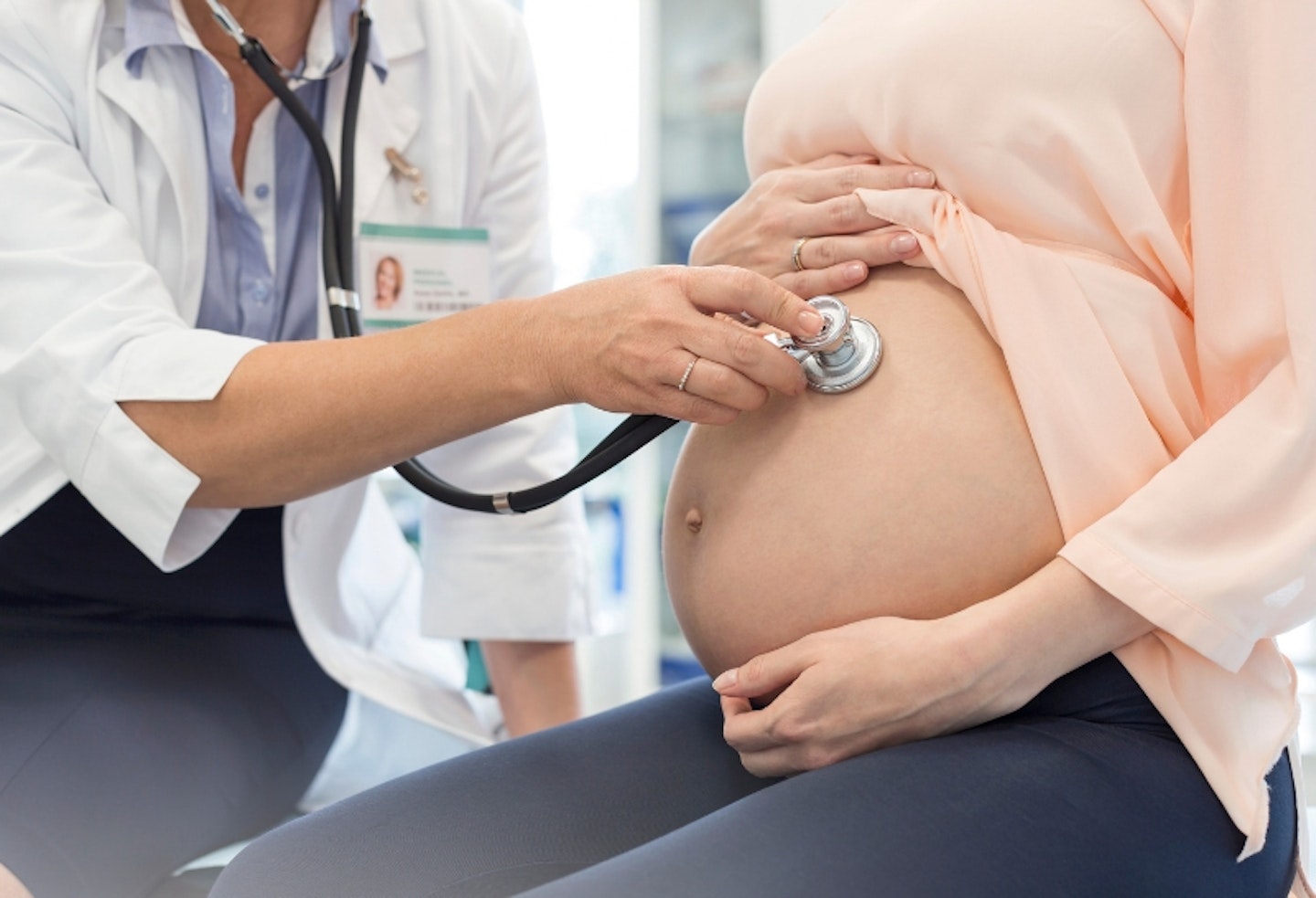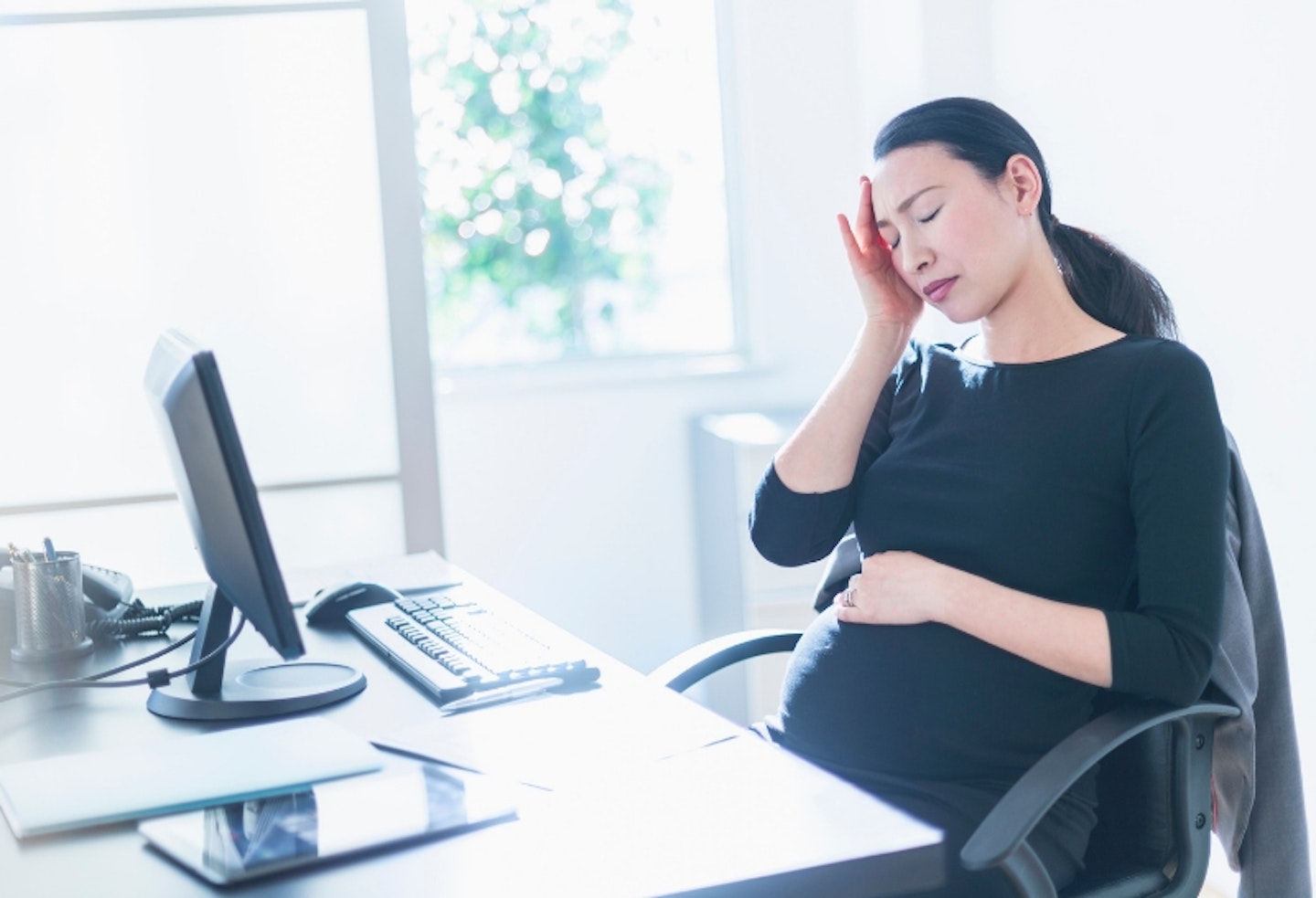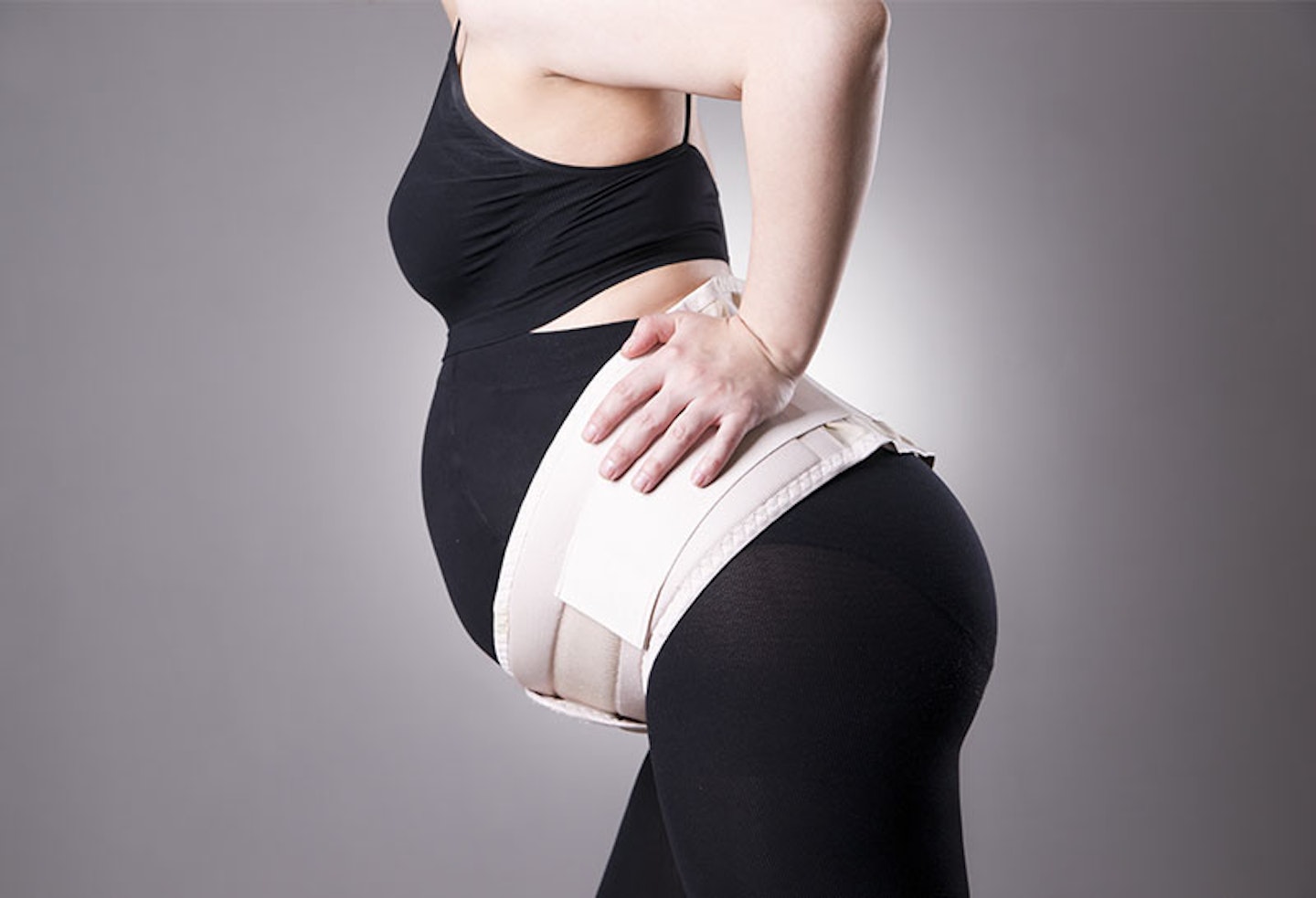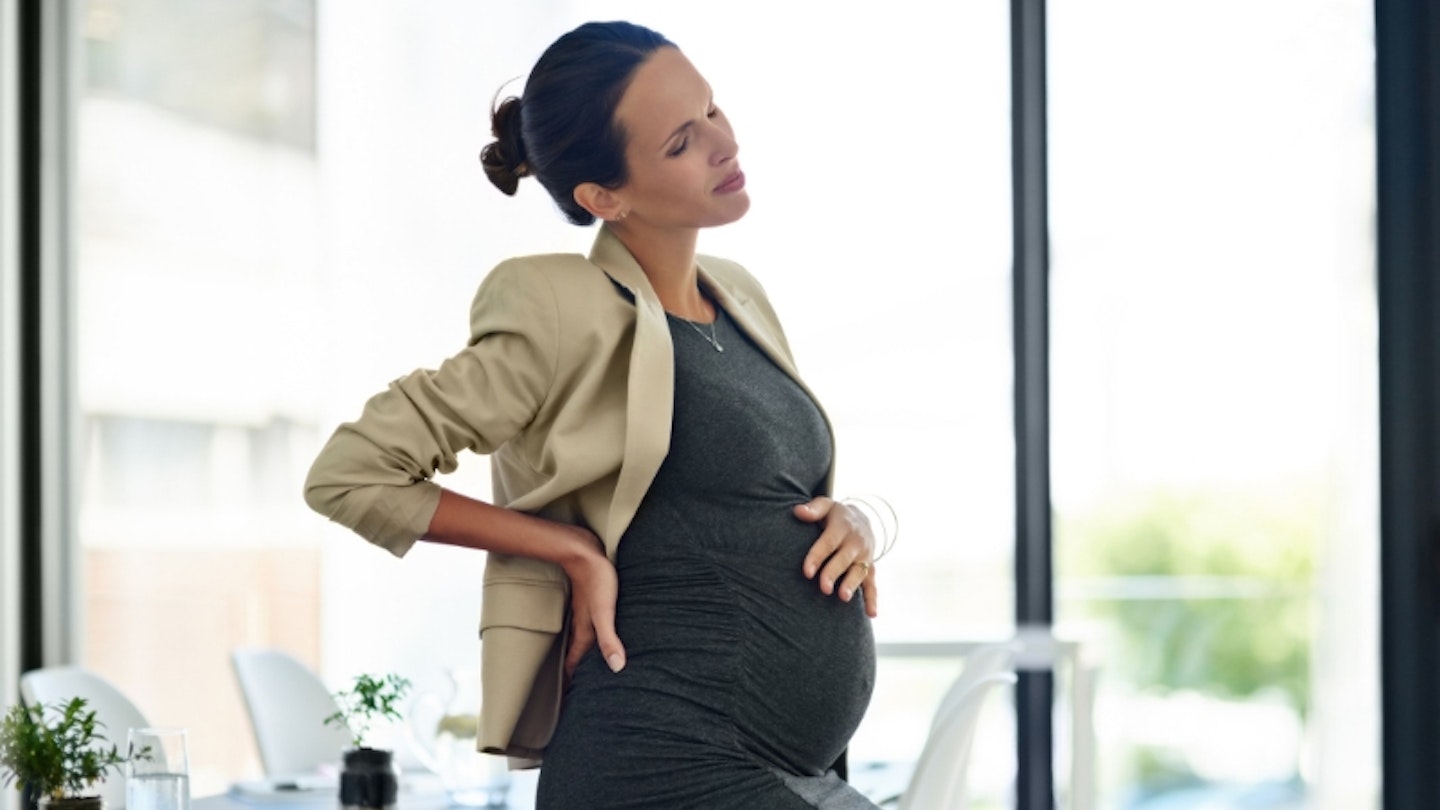Medically reviewed by Dr Deborah Lee, Dr Fox Online Pharmacy
Pregnancy is often full of mysterious aches and pains and hormonal changes that can mess with your mood and cause stress and anxiety. If you're pregnant and constantly checking your progress week by week to better understand what is going on, you might have spotted the term round ligament pain. Round ligament pain is perhaps a lesser-known physical side effect of pregnancy along with the usual suspects like morning sickness, swelling, tender breasts and fatigue. So, what exactly is it and should I be worried?
According to Dr. Deborah Lee, they say: "Round ligament pain is very common in pregnancy affecting 10% - 30% of women. It is a nuisance symptom with a normal physiological cause which is annoying but not serious.
The round ligament is a piece of connective tissue around 10-12 cm long, that connects the uterus (womb) to the pelvic region. A woman has two round ligaments, one on each side. As the pregnancy progresses and the uterus expands, the round ligaments become stretched. This can cause discomfort or pain, but it’s not serious and does not harm the fetus, says Dr. Lee.
Symptoms
Most commonly symptoms start in the second trimester – from weeks 14 – 27 - but they can occur later. It’s usually described as a sharp or sudden pain associated with movement. Alternatively, it may be an ache or a cramping pain.
Most often the pain is felt on one or other side, but it may be bilateral. Most often the pain is on the right side. It can last from minutes to hours.
The pain may occur with specific movements such as standing up from sitting, coughing, sneezing, laughing or turning over in bed. It may also be noticed when exercising, says Dr. Lee.
How to manage it
-
Keep active in pregnancy – avoid sitting still for long periods.
-
Don’t lift heavy objects.
-
Sit and stand slowly.
-
Support your bump by placing your hands underneath it before you laugh, cough or sneeze, if you can.
-
Sleep on your side with a pillow between your knees. Sleep on the opposite side to where you are fleeing the pain. You might like to position a second pillow underneath your bump.
-
Take a warm bath.
Paracetamol is safe to take in pregnancy. The recommended dose is 2 x 500 mg tablets, at 4 hourly intervals, making sure that no more than 8 x 500 mg tablets are taken in 24 hours. Non-steroidal anti-inflammatories (NSAIDs) are generally not advised in pregnancy, says Dr. Lee.
Gentle yoga or pelvic floor exercises can help.
When to see the doctor
Tell your GP, Midwife or Obstetrician about any pain you are experiencing in pregnancy. It’s never too early. Confirmation of the diagnosis is important and helps you understand what is happening to your body and how best to cope. The good news is that round ligament pain usually disappears in the third trimester, says Dr. Lee.
If the pain changes, for example, if it comes and doesn’t go away, or you have any associated symptoms such as fever, chills or vaginal bleeding, nausea, vomiting or contractions – this is now an emergency and you should seek immediate medical help', says Dr. Lee.
What is round ligament pain in pregnancy?
The NHS describes round ligament pain as an example of 'harmless stomach pains' which occur during pregnancy, along with constipation or trapped wind. Round ligament pain typically feels like a sharp cramp, jabbing pain or ache on one or both sides of your groin or lower abdomen.
Round ligament pain is basically the technical way of describing pregnancy growing pains. Midwife and author, Denyse Kirkby, explains that "Round ligaments are cord-like structures that originate beneath the groin region and extend to the top of the uterus on both sides". As these ligaments and muscles connect your womb to the groin, it is under a lot of pressure.
The pain you feel is caused by these ligaments supporting your womb as they stretch, spasm and thin to accommodate the increasing weight and to make room for your baby. Sudden movements can aggravate round ligament pain, so you’ll probably only notice it when you’re getting up, stretching or twisting. Importantly, the pain should only last for a few seconds to a few minutes. Pregnant women may also suffer from pelvic girdle pain which is in a similar region but is slightly different.

When does round ligament pain occur?
Round ligament pain is often reported to start around the second trimester (between week 14 and week 26) of pregnancy as your body is going through a period of rapid growth. However, some women are more sensitive and more susceptible to round ligament pain so could experience it in the latter weeks of the first trimester. It is likely that most women will have experienced round ligament pain at least once by the final trimester of pregnancy as it is a simple side effect of your growing womb. But, if you're lucky you might not notice it at all.
How to ease round ligament pain
 1 of 7
1 of 7Rest
Simply putting your feet up and resting should put a quick stop to round ligament pain. Try to relax and this should ease the symptoms.
 2 of 7
2 of 7Change position
Changing position is another easy way to reduce round ligament pain. Using a pregnancy pillow in bed might give your stomach more support too.
 3 of 7
3 of 7Avoid activity that makes the pain worse
If you find that stretching or twisting makes the pain worse, try and avoid this kind of movement as much as is possible. You don't want to stretch too far and cause unnecessary injury. As well as this, when you go from sitting or lying down, move slowly to avoid sudden movements which aggravate round ligament pain.
 4 of 7
4 of 7Reduce your activity levels
Exercise during pregnancy is a wonderful thing that actually has several benefits for your mental and physical health. The NHS recommends staying active during pregnancy to keep you healthy. However, if you're always on the go or doing too much intense exercise this could exacerbate symptoms. Slow down, don't do anything too intense and try swapping to a low impact activity.
 5 of 7
5 of 7Stretch out
If you do find that you're exercising too often, try pregnancy yoga instead. It is a great low impact activity that can help improve your flexibility and strengthen your core which should help with the symptoms of round ligament pain. Yoga is also great for mental health and relaxation so it might make it easier for you to deal with any pain that you do encounter.
 6 of 7
6 of 7Apply heat
A warm (but not too hot!) bath or hot water bottle can help with general aches and pains. Always check with your GP as excessive heat can be dangerous for the baby.
 7 of 7
7 of 7Try a support belt
Maternity support belts are a great idea if you are suffering from pelvic, groin, abdomen or back pain. The belt supports these areas, helps with your posture and distributes that extra weight to relieve discomfort.
Is round ligament pain dangerous?
Although any pain in your stomach, when you're pregnant, is worrying, round ligament pain is a common side effect of pregnancy and it is totally normal. The NHS explains that "It's probably nothing to worry about if the pain is mild and goes away when you change position, have a rest, do a poo or pass wind".
There is no diagnosis for round ligament pain because it is a normal part of pregnancy. However, abdominal pain that is severe, lasts for a continued length of time and does not improve when you change position or rest, could be a sign of something more serious.
Abdominal pain could signal other pregnancy complications such as premature labour, pre-eclampsia, placental abruption or a medical issue which is unrelated to pregnancy, especially if it is accompanied by fever, bleeding, pain when urinating or difficulty walking. If you are suffering from stomach pain and you are worried, ring your midwife, GP or the hospital.
Meet the expert
Dr. Deborah Lee worked for many years in the NHS, mostly as Lead Clinician within an integrated Community Sexual Health Service, Dr Deborah Lee now works as a health and medical writer, with an emphasis on women's health, including medical content for Dr Fox pharmacy. She has published several books and remains passionate about all aspects of medicine and sexual health. After completing her Medical Degree at University of Southampton Medical School in 1986, Dr Lee trained as a GP and after a number of years specialised in Sexual & Reproductive Health (S&RH).
About the author
Catriona originally joined the team as an Editorial Assistant to work on the 2019 M&B Awards. As a Digital Writer, she has written and updated hundreds of articles on the site from medical explainers to celebs news and shopping galleries. Catch her running along the Thames or eating her way around London's restaurants.
